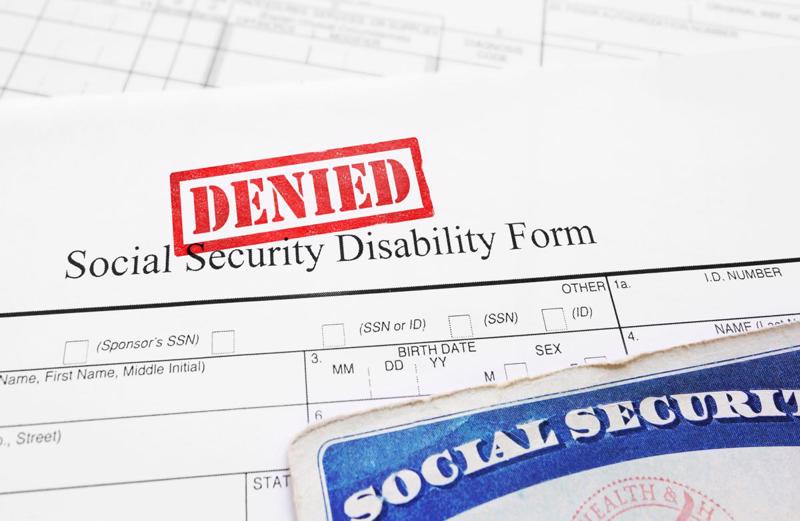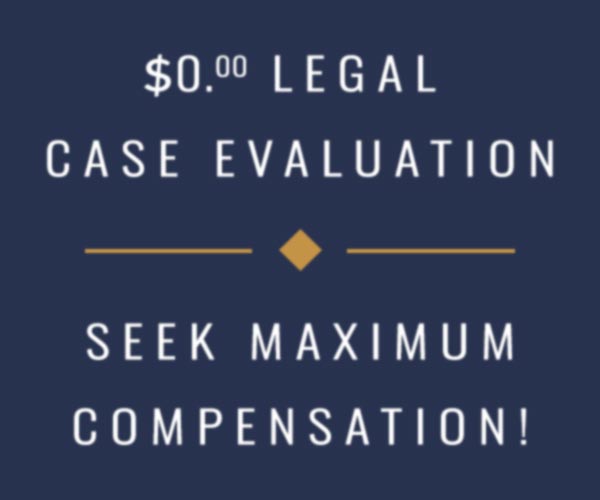Appealing Your Denied SSD Claim
Home » Cincinnati » Appealing Your Denied SSD Claim
Even if you have a qualifying disability and meet other eligibility standards, receiving Social Security Disability Insurance (SSD) benefits is no guarantee. Nationally, more than 60 percent of first-time applicants for SSD are denied.
The Cincinnati disability lawyers at Young, Reverman, & Mazzei have an extensive record of success in helping disabled individuals and their families recover the financial benefits they need. If you have questions about filing your initial SSD claim application or believe your original application was wrongfully denied, please call us today at 513-854-8885 or contact us online.
We offer free consultations to help you understand your options, and we have multiple office locations throughout the greater Cincinnati and Dayton, Ohio, areas, as well as in eastern Indiana and northern Kentucky.
 Many first-time applications are rejected due to simple mistakes such as an incomplete application form or a lack of supporting documentation. Other common reasons SSD claims are denied include:
Many first-time applications are rejected due to simple mistakes such as an incomplete application form or a lack of supporting documentation. Other common reasons SSD claims are denied include:

Table of Contents
Why Would an SSD Claim be Denied?
To receive SSD claim benefits, you must prove that you have a qualifying impairment. Accepted conditions vary widely, but the Social Security Administration (SSA) generally defines a disability as a “physical or mental impairment that prohibits substantial gainful activity and has lasted or is expected to last for at least 12 months or result in death.” Applicants must also meet standards regarding work history, Social Security contributions, and work credits. Because of the volume of applications the SSA processes, it’s important that those seeking benefits follow the procedure to the letter. This is why it is Many first-time applications are rejected due to simple mistakes such as an incomplete application form or a lack of supporting documentation. Other common reasons SSD claims are denied include:
Many first-time applications are rejected due to simple mistakes such as an incomplete application form or a lack of supporting documentation. Other common reasons SSD claims are denied include:
‘Substantial Gainful Activity’
SSD benefits are intended for disabled individuals who cannot engage in what the SSA terms “substantial gainful activity.” Someone whose income exceeds a set amount of impairment-related work expenses is typically deemed capable of substantial gainful activity. This amount differs according to each applicant’s disability and can change depending on updates to the national average wage index.Related: SSD Benefits in Cincinnati: Can You Work While Getting Them?
Inadequate Work Credits
A successful application for SSD benefits is partially based on the applicant’s work credits. These credits are used to determine if a person has the required amount of covered work to qualify for benefits; the minimum number of work credits needed depends on the age at which you became disabled. For most applicants, the minimum number of work credits needed is 40—half of which must have been earned in the 10 years prior to becoming disabled. You may still qualify for Supplemental Security Income (SSI) if you are low-income but haven’t gained enough work credits for SSD benefits.‘Short-Term’ Disability
To qualify for SSD benefits, an applicant’s medical condition must severely limit or impede their ability to do basic work for at least 12 months or have an illness that is considered terminal. Short-term conditions, even if they cause temporary dysfunction or inability to work, do not qualify.Related: Social Security Options for Temporary Disabilities
Existing Drug or Alcohol Addiction
You are not considered eligible for SSD benefits if your inability to work is due to alcohol or drug abuse. While drug addiction as the primary reason for an applicant’s condition is cause for disqualification, applicants may still be eligible to receive benefits for conditions if alcohol or drug use are in their past are contributing factors to their illness. The addiction cannot be an active reason for applying for SSD.Previous SSD Denials
Often, individuals whose first application for SSD was denied try to re-apply for benefits rather than seek an appeal. However, the SSA has an established appeals process for denied benefits claims, and the agency generally reject claims when they encounter new applications from those who applied previously.
Appealing a Denied SSD Claim
If you believe your application for benefits was wrongfully denied, you have 60 days to appeal the decision. There are four levels to the SSD claim appeals process:Reconsideration
A new case processor will be assigned to review the initial application, as well any additional evidence to support the SSD claim. Applicants will need to provide any documentation that was lacking originally, such as medical records or income verification.Administrative Law Judge Hearing
In the event that the reconsideration ruling also denies the application, a hearing before an administrative law judge can be requested by the applicant. This is an opportunity to clarify questions or information, submit testimonies from experts, and offer new evidence in the applicant’s favor.Social Security Appeals Council Review
If an application is denied by an administrative law judge, the next step in the appeals process is taking the claim to the Social Security Appeals Council. At this point, the Appeals Council will do one of the following: take a new look at your case, send the case back to the administrative law judge to review further, or deny the appeal entirely.Federal Court Review
A final decision on your case must be made in federal court if the Appeals Council makes the decision not to review your file or denies your SSD claim again. You will have to file a civil lawsuit at this stage of the appeals process, and it is advisable to have a Social Security Disability attorney on your side.Working with a Disability Lawyer
While you are not required to work with an attorney when applying for SSD claim benefits or appealing a denied claim, doing so does improve your chances for a positive outcome. In a recent study, the U.S. Government Accountability Office found that claimants who were represented by a personal injury lawyer were three times more likely to be approved for benefits than individuals without legal representation. The success rate was even higher during the appeals process. The disability attorneys at Young, Reverman, & Mazzei have decades of experience with Social Security Disability claims. If you or a loved one is seeking SSD benefits or needs help appealing a rejected claim, please call us today at 513-854-8885 or contact us online for your free, no-obligation consultation. We represent clients from the greater Cincinnati and Dayton, Ohio, areas as well as individuals from eastern Indiana and northern Kentucky.Testimonials
"Jay bolton really took care of me and cared about my case and time. Great attorney very professional gets the job done!"
- Thomas M.
"Excellent group of Attorneys and staff, they were a tremendous help to my family and I."
- Ronald O.
I work with this office on a daily basis. Always prompt on returning emails and phone calls. We enjoy doing business with this firm.Highly recommended.
- Kendra R.


